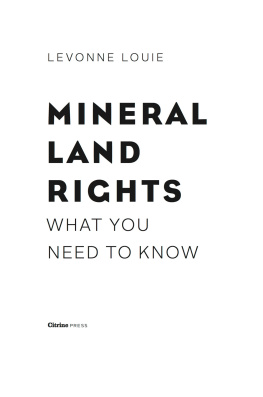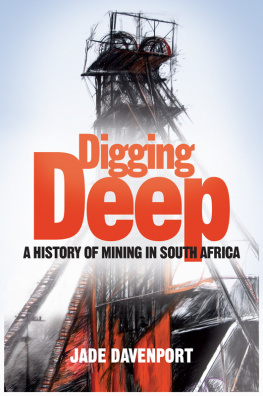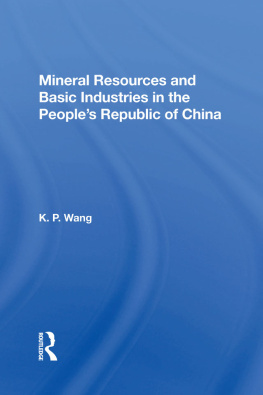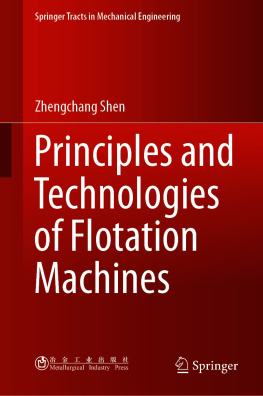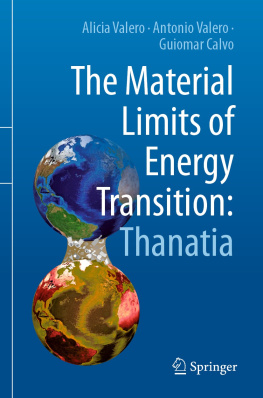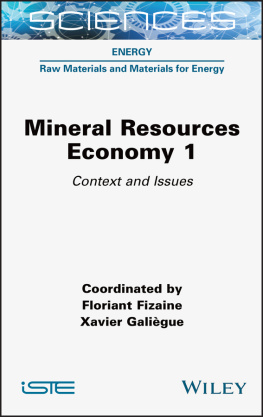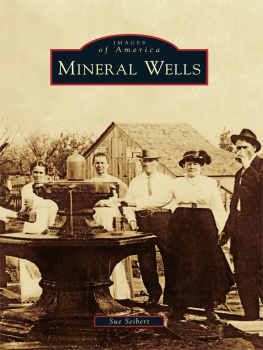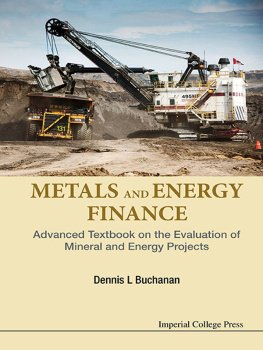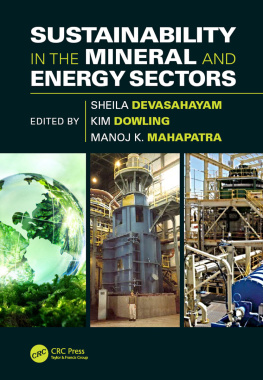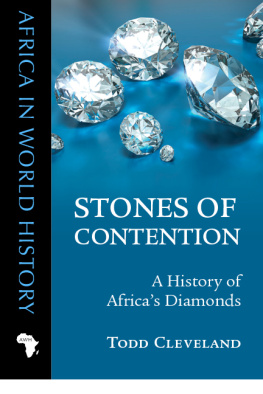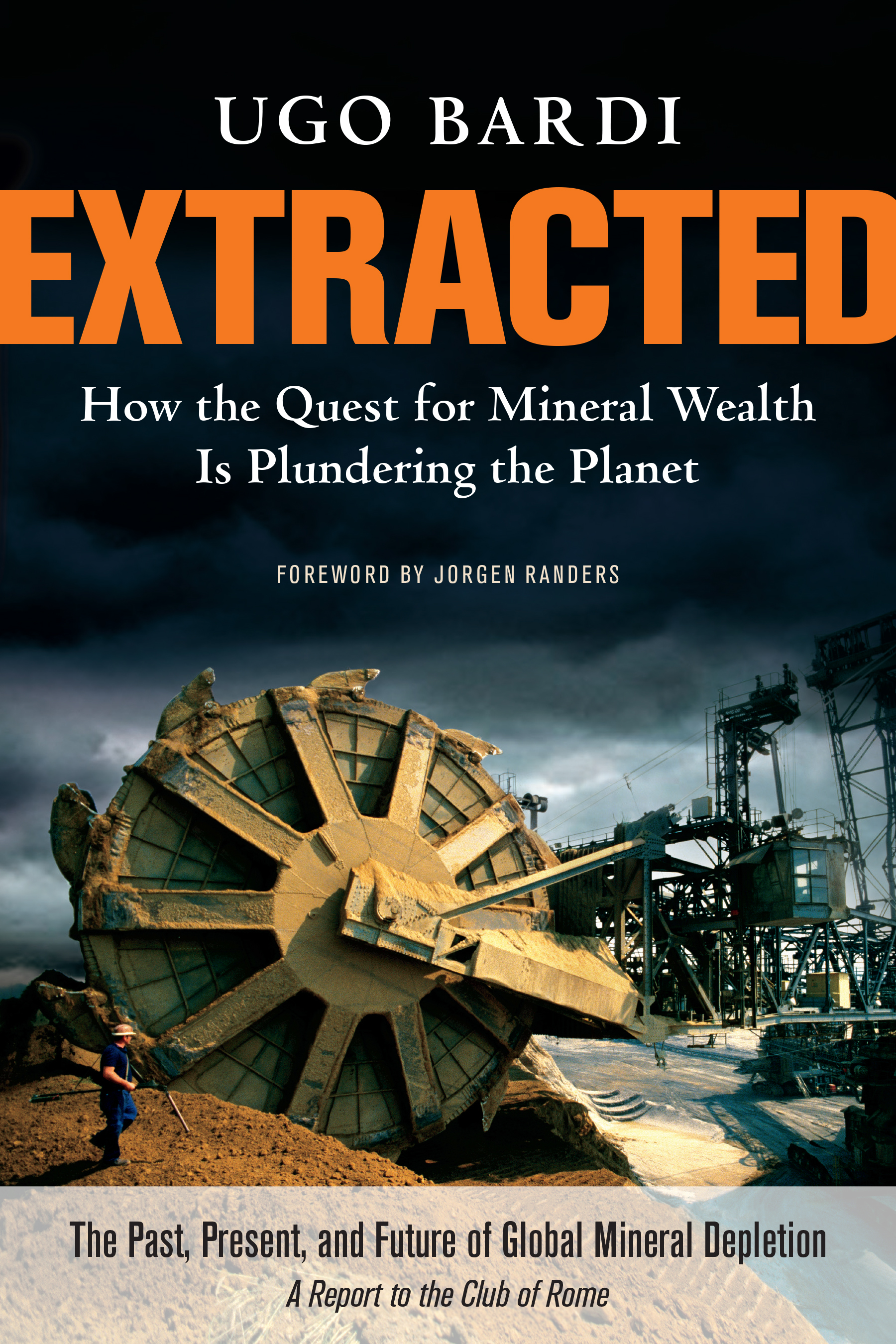Praise for Extracted
Here is the book many of us in the sustainability world have been looking forward to: a comprehensive, readable, historically informed inquiry into the depletion of Earths mineral resources. Extracted should be on the reading list of every introductory class in economicsas well as environmental studies, geology, history, political science... heck, everybody should read it.
Richard Heinberg , senior fellow, Post Carbon Institute; author, The End of Growth
The world economy is now phenomenally large in comparison with the planetary base that is the setting for all economic activity. Natural resources are becoming increasingly scarce, and the planets sinks for absorbing waste products are already exhausted in many contexts. In Extracted , Ugo Bardi tells the story of our planetary plunder from its beginnings up through the present. He tells it with verve and insight, and he offers a powerful perspective on what the implications are for the future. This newest report from the Club of Rome demands our serious attention.
James Gustave Speth , author, America the Possible: Manifesto for a New Economy ; former dean, Yale School of Forestry and Environmental Studies
Most decision makers and citizens view money as the primary driver of our societies. Yet our civilization is first dependent on extraction of natural capitalminerals, ores, and particularly energythat are the precursors for everything in our economies. Ugo Bardi and guest authors provide an excellent overview on the history, significance, and future of minerals and energy and how these relate to our human ecosystem. Wide-boundary thinking at its best.
Nate Hagens , The Oil Drum ; former vice-president, Salomon Brothers and Lehman Brothers
Although Ugo Bardis fine book focuses on extraction, it also discusses geological formation of minerals and ores, mining, metallurgy, coinage of precious metals, debt, waste, pollution, climate change, and the dark side of mining. Interspersed are short digressions written by other experts on related topics ranging from soil fertility and plants as miners, to peak oil and coal, and the Hubbert depletion curve. The book is clearly written and insightful. Highly recommended!
Herman Daly , author of Ecological Economics ; professor emeritus, School of Public Policy, University of Maryland
Ugo Bardis book is an effective piece of work for stimulating thought and debate on this planets mineral wealth and how we should view this issue within the framework of sustainability. The book goes into the history of how human society has used minerals, their relationship with the evolution of human civilization, and how we should use these resources in the future. There is a wealth of information in this volume that deals with important minerals like uranium, lithium, rare earths, copper, nickel, zinc, phosphorous, and others. Readers would find the material presented very informative and a valuable basis for discussions on minerals policy.
Rajendra K. Pachauri , chairman, UN Intergovernmental Panel on Climate Change; CEO, The Energy and Resources Institute
Ugo Ba r di
Ex t r a c t e d
How the Quest for Mineral Wealth Is Plundering the Planet
Foreword by Jorgen Randers
A Report to the Club of Rome
Chelsea Green Publishing
White River Junction, Vermont
German edition copyright 2013 by oekom verlag GmbH.
English edition copyright 2014 by Chelsea Green Publishing.
All rights reserved.
No part of this book may be transmitted or reproduced in any form by any means without permission in writing from the publisher.
Originally published in German as Der geplnderte Planet in 2013 by oekom verlag GmbH, Waltherstrae 29, 80337 Mnchen.
Editor: Joni Praded
Project Manager: Patricia Stone
Copy Editor: Nancy Ringer
Proofreader: Eileen Clawson
Indexer: Shana Milkie
Designer: Melissa Jacobson
Printed in the United States of America
First printing April, 2014
10 9 8 7 6 5 4 3 2 1 14 15 16 17 18
Our Commitment to Green Publishing
Chelsea Green sees publishing as a tool for cultural change and ecological stewardship. We strive to align our book manufacturing practices with our editorial mission and to reduce the impact of our business enterprise in the environment. We print our books and catalogs on chlorine-free recycled paper, using vegetable-based inks whenever possible. This book may cost slightly more because it was printed on paper that contains recycled fiber, and we hope youll agree that its worth it. Chelsea Green is a member of the Green Press Initiative ( www.greenpressinitiative.org ), a nonprofit coalition of publishers, manufacturers, and authors working to protect the worlds endangered forests and conserve natural resources. Extracted was printed on paper supplied by Thomson-Shore that contains at least 30% postconsumer recycled fiber.
Library of Congress Cataloging-in-Publication Data
Bardi, Ugo.
Extracted : how the quest for mineral wealth is plundering the planet : a report to the Club of Rome / Ugo Bardi.
pages cm.
Includes index.
ISBN 978-1-60358-541-5 (pbk.) ISBN 978-1-60358-542-2 (ebook)
1. Mineral industriesEnvironmental aspects. 2. Mines and mineral resources. 3. Conservation of natural resources. I. Club of Rome. II. Title.
TD195.M5B368 2014
333.8dc23
2014000242
Chelsea Green Publishing
85 North Main Street, Suite 120
White River Junction, VT 05001
(802) 295-6300
www.chelseagreen.com
To my son Francesco, the geologist.
A Message from the Club of Rome
E xtracted: How the Quest for Mineral Wealth Is Plundering the Planet is a Report to the Club of Rome. It is peer reviewed by the Club of Rome and its expert members to ensure that it is scientifically rigorous and innovative and contributes a new, important element to the debate about humanitys predicaments. Since The Limits to Growth , the first Report to the Club of Rome in 1972, 33 publications have received this imprimatur.
The Club of Rome was founded in 1968 as an association of leading independent thinkers from politics, business, and science. It now has 150 individual members; an international center in Winterthur, Switzerland; and national associations in 30 countries. An important element of the national associations work is to shape national agendas.
Members are unified in their concern for the future of humanity and the planet, and in their goal to address the root causes of the systemic crisis. Their work focuses on the need for a different set of values to change economic theory and practice and safeguard resources; the creation of a more equal society that generates full employment; and the need for governance systems that put people at their center. This holistic approach is needed now more than ever before.
The club pursues its objectives through scientific analysis, communication, networking, advocacy, and cooperation with a wide range of partners. Its main products are books, discussion papers, policy briefs, conferences, webinars, lectures, high-level meetings, and events. Key findings are used to challenge policy makers in the public and private sectors to shift to new ways of thinking and new forms of action.
With Extracted , Ugo Bardi presents the current state of knowledge and advances the debate around the issues of depletion and misuse of our planets natural capital. Since the founding of the Club of Rome in 1968, the question of humanitys growth and resource use in relationship to our planetary boundaries has been central to its work. Two recent Club of Rome reports complement this vital debate: Ernst von Weizsckers Factor Five , which shows how meaningful action in the coming decades can transform the global economy through an 80 percent improvement in resource productivity, and Gunter Paulis The Blue Economy , which presents business models that can shift society from a state of scarcity to one of abundance by tackling, in new ways, issues that cause environmental and related problems.


